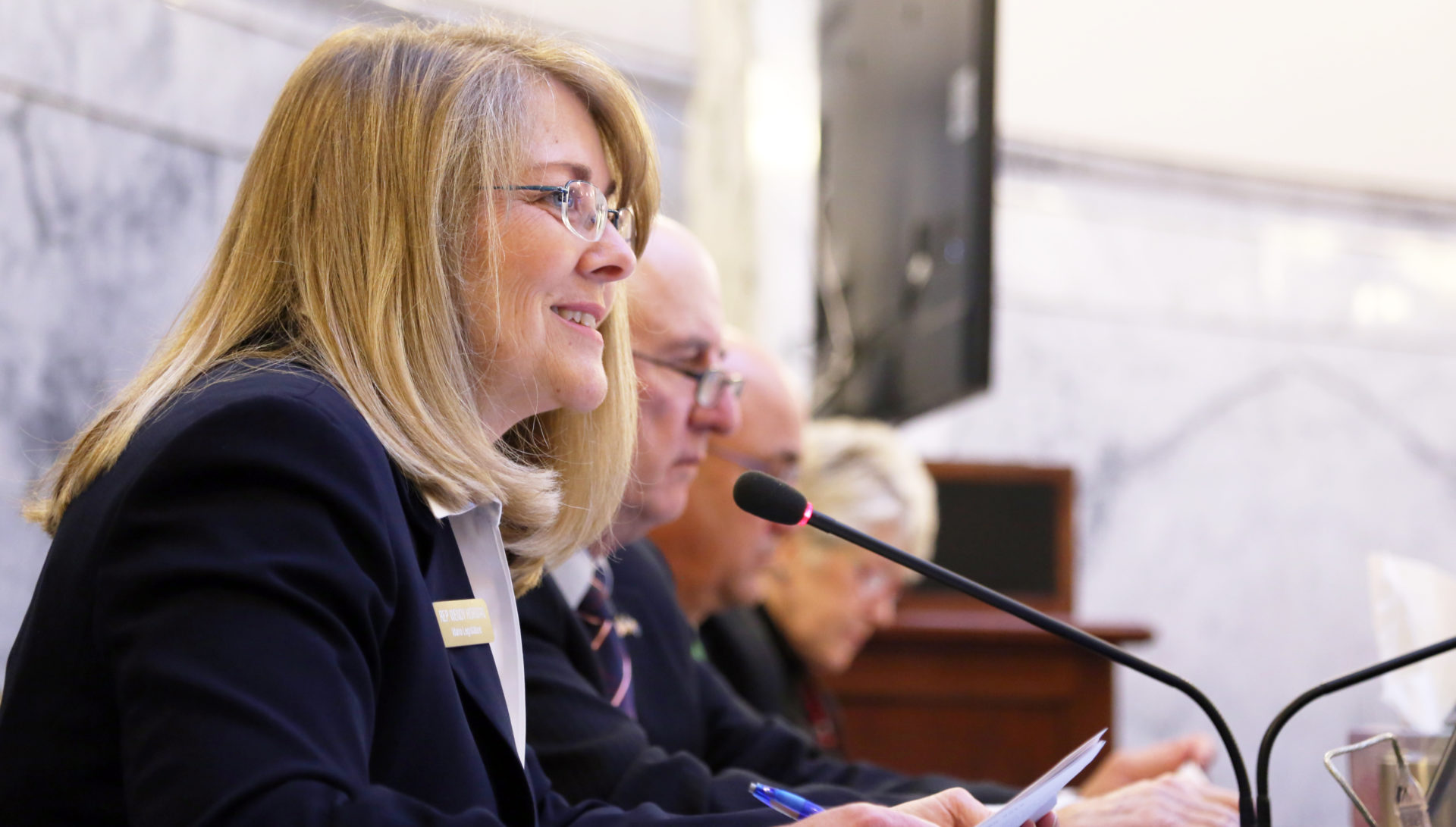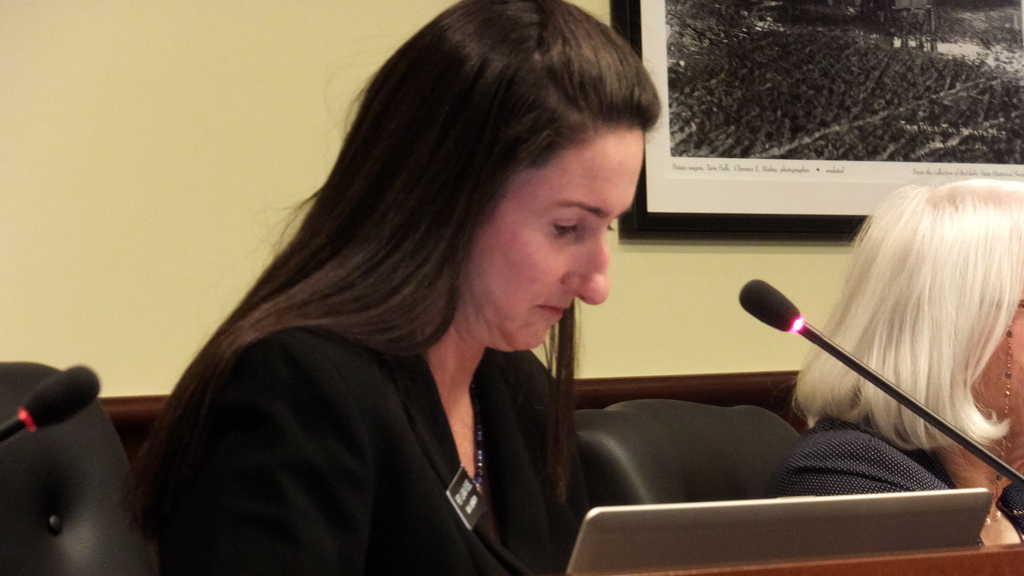(UPDATED, 11:18 a.m., April 13, with a correction on the State Board appointment process.)
Gov. Butch Otter began the 2018 legislative session by thanking his higher education task force — and talking about overhauling Idaho’s college and university system.
“The system itself is slow to adapt and too good at perpetuating the status quo,” Otter said during his Jan. 8 State of the State address. “It simply is not equipped or empowered to make the big management changes needed.”
The legislative session ended on March 28, with the status quo pretty much in place. The task force’s recommendations will largely have to wait for another year — with another governor in place.
It was a fairly slow start, especially given Otter’s expectations. Otter has often praised his 2013 K-12 task force for producing a wide-ranging list of 20 recommendations, which have more or less provided what Otter has called a long-needed five-year plan for public schools. When Otter announced his higher education task force in January 2017 he made no secret of his desire to replicate the results of his K-12 task force.
What didn’t happen?
One nonstarter garnered most of the attention. Before the session, Otter latched onto an idea from the business leaders on his task force — creating a higher education “CEO.” Otter said the state needed a “change agent” who would look for savings within the higher education system, and allow policymakers to move money into scholarships or other student programs.
The “chief education officer” proposal wasn’t actually a task force recommendation. The 36-member group made a more generic recommendation — a shift toward higher education “systemness,” by consolidating functions such as IT, payroll or human resources. It was only after the task force finished its work that the business leaders recommended a CEO.
The idea didn’t come cheap: At $200,000 a year, plus $69,500 for benefits, the CEO would have been the highest-paid employee in state government. The funding request went nowhere.
In fairness, some of the task force’s other recommendations are long-term propositions that weren’t going to happen in 2018.
The task force recommended shifting at least some state dollars into an outcomes-based model. In other words, colleges and universities could be rewarded based on their graduation numbers, or for serving at-risk students. But the task force also set a 2019-20 target date for the transition.
The task force also touted a “digital campus” model — pushing college courses into rural libraries or community centers, in hopes of attracting new students into the higher education system. But it’s unclear when a digital campus could go live. And in his State of the State address, Otter tied the fate of the digital campus to hiring a CEO and cutting higher education overhead costs.
What did happen?
Otter didn’t come away from the 2018 session empty-handed.
For two years, Otter had tried to sell the Legislature on a scholarship to help older students return to college and complete their studies. The task force endorsed the idea, and this year, legislators followed suit.
Otter didn’t get his $5 million funding increase for college scholarships, but lawmakers ponied up $3.5 million. This isn’t nearly enough money to meet the unmet need; during the 2018 session, the State Board of Education said it had a waiting list of 2,400 eligible students hoping for a share of Opportunity Scholarship money. And the task force recommended opening up the scholarships to even more students, dropping the high school GPA requirement from 3.0 to 2.5.
Otter also got his $350,000 request to cover another task force recommendation: a degree audit system that will help track students’ progress toward graduation.

And legislators didn’t completely turn their back on the CEO idea. They earmarked $250,000 to hire a consultant to scope out potential savings in the higher education system. Otter had sought $500,000.
The degree audit system and the consultant’s study are two key outgrowths of the task force’s work, said Rep. Wendy Horman, R-Idaho Falls, a member of the task force.
“Working together, those are two very important tools going forward,” she said.
What happens next
Asked about the task force at his annual post-session news conference on March 29, Otter ran through a range of emotions.
He again praised his group’s work. “That report had some solid recommendations.” He said he could understand why legislators balked at creating a CEO’s position, while agreeing to hire a consultant instead. But he also called out Boise State University President Bob Kustra, a task force member, for publicly condemning the CEO proposal.
And Otter ended up where he started the session in early January, grumbling about the status quo and bemoaning a reluctance to change. “There was too much adoration for the way the system was being operated.”
Normally, a public dustup between a governor and a university president would be big news. This time, it might not leave a lasting mark. Otter and Kustra are both retiring.
Turnover could undermine the work of the task force.
Two other university presidents are retiring after serving on Otter’s task force. Otter’s seven State Board appointees sat on the task force — but as board members’ terms expire, a new governor may well try to reshape a board that oversees the state’s K-12 and higher education policy.

At least one task force member has job security; Rep. Ilana Rubel is unopposed in the May primary and the general election. The Boise Democrat thought things might move more quickly in Otter’s last legislative session, and she’s not sure what to expect in 2019 and beyond. But she isn’t giving up on her project from the task force, a co-op project to allow students to alternate between semesters on campus and semesters in the work place.
“I’m working that on the side with anybody who will listen,” she said.
